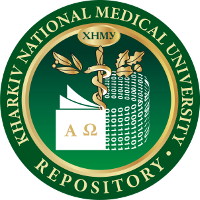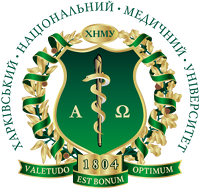Please use this identifier to cite or link to this item:
http://repo.knmu.edu.ua/handle/123456789/24558| Title: | Investigation of the effect of xanthium strumarium l. extract on the level of thyroid-stimulating hormones and mass coefficient of rat thyroid gland |
| Authors: | Vladymyrova, I. Georgiyants, Victoriya Tishakova, T. Shumova, H. |
| Keywords: | iodine deficiency disorders Xanthium strumarium L. extract thyroid-stimulating action |
| Issue Date: | 2019 |
| Citation: | Investigation of the effect of xanthium strumarium l. extract on the level of thyroid-stimulating hormones and mass coefficient of rat thyroid gland / I. Vladymyrova, V. Georgiyants, T. Tishakova, H. Shumova // Bulletin of national academy of sciences of the republic of Kazakhstan. – 2019. – Vol. 5, № 381. – Р. 15‒22. |
| Abstract: | Iodine deficiency disorders (IDD) are pathological states caused by the reduction of iodine intake. These diseases include iodine-deficient hypothyroidism, diffuse nontoxic goiter, nodular goiter, functional autonomy of thyroid. Goiter is one of the most common thyroid disorders. Iodine deficiency is the most common cause of these diseases. It is evident that the most adverse effects arise with early stage of human development that moves through the stages of embryofoetal development infancy, childhood, adolescence, and adulthood. The main etiologic factor of this pathology is a lack of iodine in biosphere; it is almost unchanged. Therefore the revention and control of iodine deficiency disorders among the population in iodine deficient regions is nagging health and social problem. It is known that seafood (seaweed, shellfish, mollusks, and fish) is the primary natural source of iodine. Other food products contain insignificant amount of this micro-element. Brown algae that is rich in iodine stimulates the thyroid gland and regulates its metabolism. In addition to seaweeds and seafood there are plants that are source of iodine and used for pharmacological correction and prevention of IDD. These plants contain substances that have an effect not on the thyrocytes but on the cells of immune system present in gland and responsible for the processes of tissue regulation. Xanthium strumarium L. is relevant to plants that have a great impact on the pathogenesis of the respective diseases. That's why this plant was chosen as a study object. Extract of Xanthium strumarium L. has been obtained. The amount of total iodine (0.21%) has been performed by titrimetric method with sodium thiosulfate (0.01М) according to the requirements of the monograph “LaminariaN” of the State Pharmacopoeia of Ukraine. The influence of Xanthium strumarium L. extract on the level of thyroid-stimulating hormones in serum and mass coefficient has been investigated on the model of perchlorate-induced hypothyroidism. It has been established that Xanthium strumarium L. extract was inferior to efficacy compared to reference drug “Iodomarin® 100”. Taking into consideration mechanism of action of sodium perchlorate, it can be assumed that inorganic iodine contained in the tablets of “Iodomarin® 100” had higher ability to penetrate into the tissues of thyroid gland compared to other mostly organic forms of iodine in Xanthium strumarium L. extract. This inorganic form of iodine results in lowering of local iodine deficiency and reduces signs of pathology. |
| URI: | https://repo.knmu.edu.ua/handle/123456789/24558 |
| Appears in Collections: | Наукові праці. Кафедра медичної та біоорганічної хімії |
Files in This Item:
| File | Description | Size | Format | |
|---|---|---|---|---|
| Bulletin__05_2019__ГОТОВЫЙ (1).pdf | 332,55 kB | Adobe PDF |  View/Open |
Items in DSpace are protected by copyright, with all rights reserved, unless otherwise indicated.

